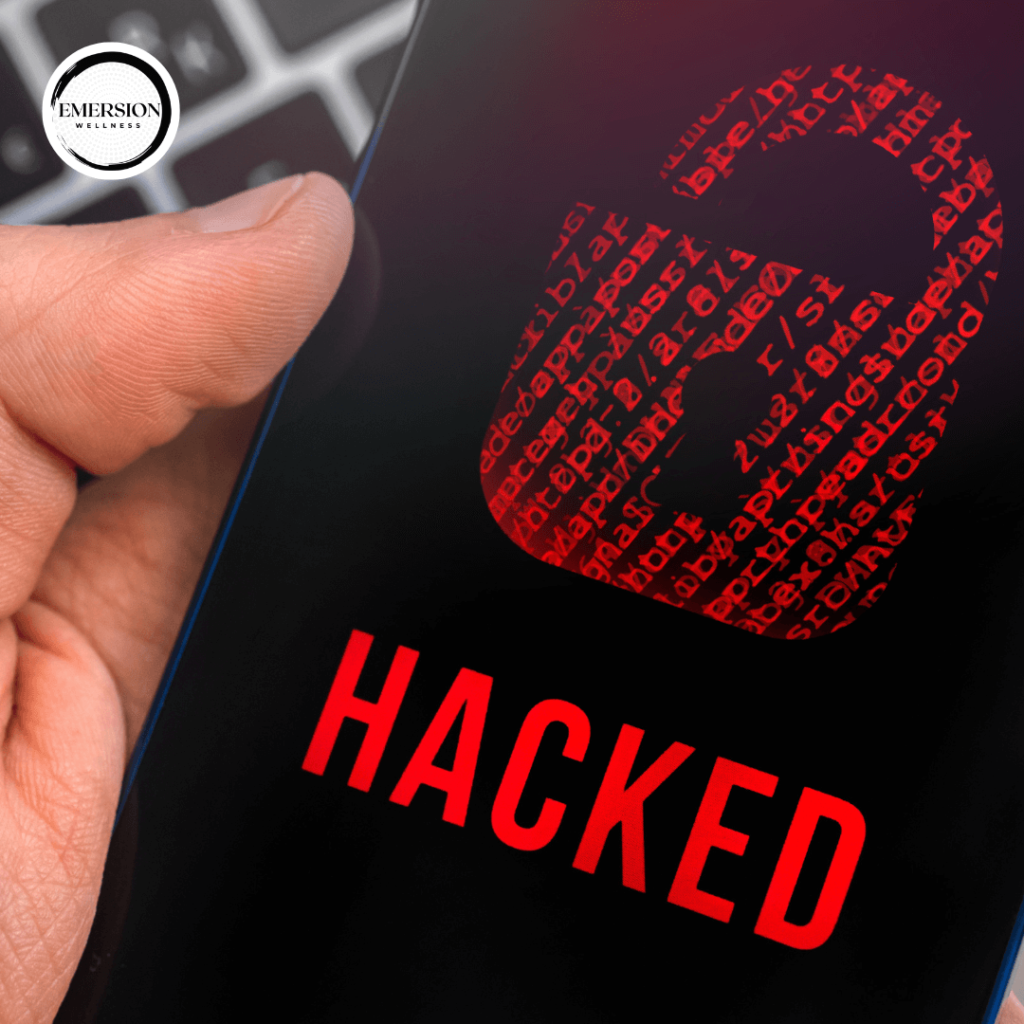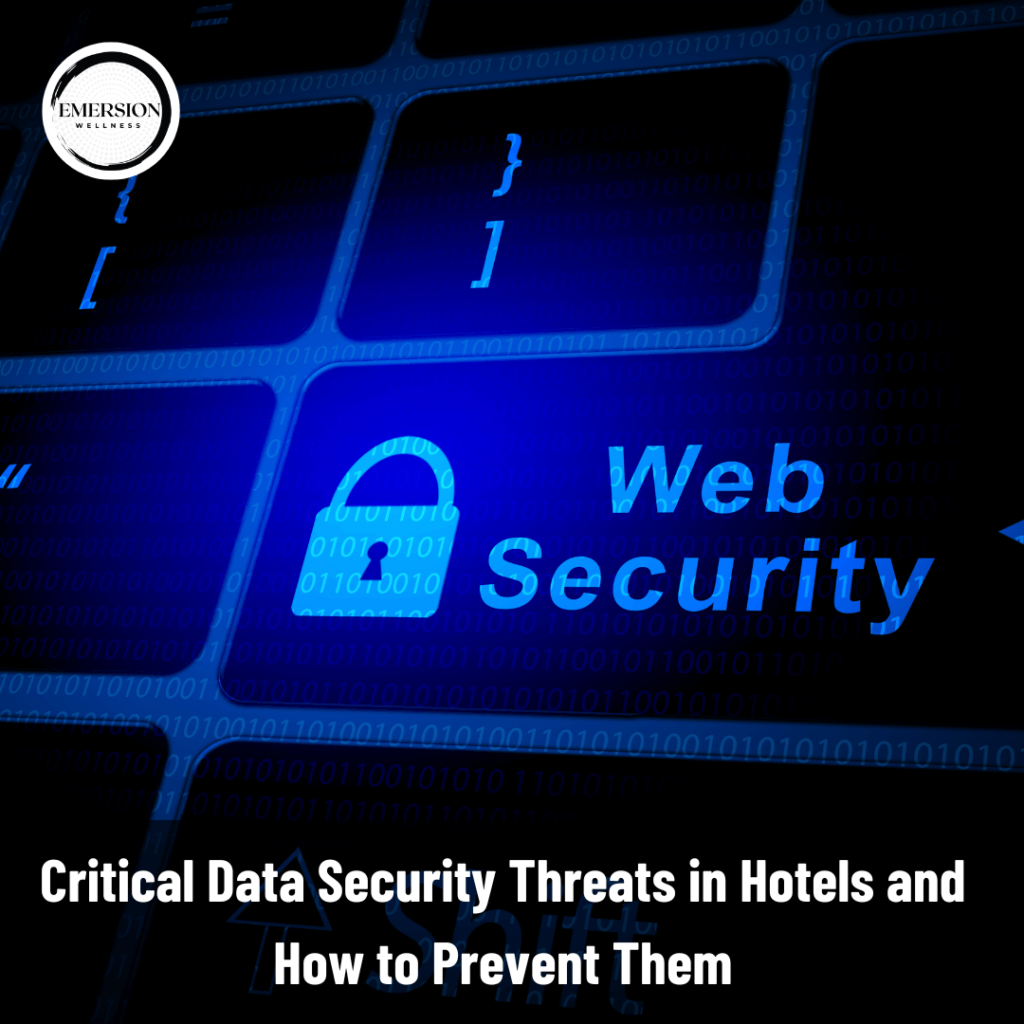Data security is a pressing concern for hotels worldwide. With the increasing digitization of hotel operations, safeguarding guest information has become paramount. Emersion Wellness, with its extensive experience in hotel consultancy, provides valuable insights on data security threats in hotels and practical strategies to prevent them. Our expertise, coupled with real-life examples, helps hoteliers navigate the complexities of data security.
Key Takeaways:
- Understanding the major data security threats in hotels
- Implementing robust cybersecurity measures
- Real-life examples of hotels facing data breaches
- Actionable strategies to enhance data security
The Growing Importance of Data Security in Hotels
Rise of Cyber Threats in the Hospitality Industry
The hospitality industry has become a prime target for cybercriminals due to the vast amount of personal and financial data it holds. From reservation systems to guest Wi-Fi networks, numerous entry points make hotels vulnerable to cyber-attacks. Recognizing and addressing these threats is crucial for maintaining guest trust and protecting revenue.
Statistic: According to a report by Trustwave, 51% of data breaches in the hospitality sector involve payment card data, underscoring the need for stringent security measures.
Financial and Reputational Impacts
A data breach can have severe financial and reputational repercussions for a hotel. Beyond the immediate costs of addressing the breach, hotels may face legal penalties, loss of customer trust, and a decline in bookings. Ensuring robust data security is essential to mitigate these risks and maintain a strong market position.
Regulatory Compliance
Hotels must comply with various data protection regulations, such as the General Data Protection Regulation (GDPR) in Europe and the California Consumer Privacy Act (CCPA) in the United States. Non-compliance can result in hefty fines and legal consequences. Implementing comprehensive data security measures helps hotels stay compliant and avoid regulatory pitfalls.
Enhancing Guest Trust and Loyalty
Guests prioritize their data security and are more likely to choose hotels that demonstrate a commitment to protecting their information. By investing in data security, hotels can enhance guest trust and loyalty, leading to repeat bookings and positive reviews.
Integration of Technology in Hotel Operations
As hotels increasingly adopt digital solutions for reservations, check-ins, and guest services, the need for robust cybersecurity measures becomes more pronounced. Integrating technology with strong security protocols can streamline operations while safeguarding sensitive data.

Also, see Top travel industry trends in 2024 to Maximize your Hotel Revenue
Common Data Security Threats in Hotels
Phishing Attacks
Phishing attacks are a prevalent threat in the hospitality industry. Cybercriminals use deceptive emails to trick employees into revealing sensitive information or downloading malware. These attacks can compromise guest data and lead to significant financial losses.
Real-Life Example: A luxury hotel in London fell victim to a phishing attack, resulting in the theft of guest credit card information. The breach led to a substantial loss of revenue and damaged the hotel's reputation.
Malware and Ransomware
Malware and ransomware attacks can disrupt hotel operations and compromise guest data. Cybercriminals use malicious software to gain unauthorized access to hotel systems, encrypt data, and demand ransom payments to restore access.
Insider Threats
Insider threats pose a significant risk to hotel data security. Employees with access to sensitive information may intentionally or unintentionally compromise data. Implementing strict access controls and monitoring employee activities can mitigate this risk.
Unsecured Wi-Fi Networks
Many hotels offer free Wi-Fi to guests, making it a potential target for cyber-attacks. Unsecured Wi-Fi networks can allow cybercriminals to intercept data and gain unauthorized access to hotel systems. Ensuring secure Wi-Fi connections is essential for protecting guest data.
Data Breaches from Third-Party Vendors
Hotels often collaborate with third-party vendors for services such as payment processing and reservations. However, these partnerships can expose hotels to data breaches if vendors lack robust security measures. Conducting thorough security assessments of vendors is crucial for protecting guest information.
Implementing Robust Cybersecurity Measures
Employee Training and Awareness
Educating employees about data security threats and best practices is vital. Regular training sessions can help staff recognize phishing attempts, handle sensitive information securely, and respond appropriately to potential threats.
Multi-Factor Authentication (MFA)
Implementing multi-factor authentication (MFA) adds an extra layer of security to hotel systems. MFA requires users to verify their identity through multiple methods, such as passwords and biometric verification, reducing the risk of unauthorized access.
Statistic: A study by Microsoft found that MFA can prevent 99.9% of account compromise attacks, highlighting its importance in data security.
Regular Security Audits and Updates
Conducting regular security audits helps identify vulnerabilities in hotel systems and address them promptly. Keeping software and systems up to date with the latest security patches is essential for preventing cyber-attacks.
Encryption of Sensitive Data
Encrypting sensitive data, such as guest information and payment card details, adds a layer of protection against unauthorized access. Encrypted data is unreadable without the decryption key, making it more challenging for cybercriminals to exploit.
Secure Payment Processing Systems
Implementing secure payment processing systems is crucial for protecting guest payment information. Adopting solutions that comply with Payment Card Industry Data Security Standard (PCI DSS) ensures the safe handling of payment card data.
Real-Life Examples of Data Breaches in Hotels
Marriott International Data Breach
In 2018, Marriott International experienced one of the largest data breaches in history, affecting over 500 million guests. The breach involved unauthorized access to the Starwood guest reservation database, compromising sensitive information such as names, addresses, and passport numbers.
Outcome: Marriott faced significant financial losses and reputational damage. The breach underscored the need for comprehensive data security measures and robust incident response plans.
Hyatt Hotels Data Breach
Hyatt Hotels experienced a data breach in 2015 that affected 250 hotels worldwide. Malware was found on payment processing systems, leading to the theft of payment card information.
Outcome: Hyatt implemented enhanced security measures, including regular security audits and the adoption of advanced cybersecurity technologies, to prevent future breaches.
MGM Resorts Data Breach
In 2020, MGM Resorts suffered a data breach that exposed the personal information of 10.6 million guests. The compromised data included names, addresses, phone numbers, and email addresses.
Outcome: MGM Resorts strengthened its cybersecurity protocols and enhanced its incident response strategies to mitigate the impact of future data breaches.
Strategies to Enhance Data Security in Hotels
Conducting Regular Security Training
Regular security training for employees is essential for creating a culture of cybersecurity awareness. Training should cover topics such as recognizing phishing attempts, handling sensitive data securely, and responding to security incidents.
Implementing Advanced Threat Detection Systems
Advanced threat detection systems can identify and respond to potential security threats in real time. These systems use artificial intelligence (AI) and machine learning to detect anomalies and prevent cyber-attacks.
Strengthening Access Controls
Implementing strict access controls ensures that only authorized personnel have access to sensitive information. Role-based access control (RBAC) and the principle of least privilege can minimize the risk of insider threats.
Partnering with Cybersecurity Experts
Collaborating with cybersecurity experts can provide hotels with the knowledge and resources needed to enhance data security. Cybersecurity consultants can conduct risk assessments, develop incident response plans, and recommend best practices for safeguarding data.
Creating a Comprehensive Incident Response Plan
Having a comprehensive incident response plan in place is crucial for mitigating the impact of data breaches. The plan should outline procedures for identifying, containing, and recovering from security incidents, as well as communicating with affected parties.
Table of Key Facts and Insights
| Key Fact | Insight |
| 51% of data breaches involve payment cards | Highlights the need for secure payment processing systems |
| MFA can prevent 99.9% of account attacks | Emphasizes the importance of implementing multi-factor authentication |
| Marriott's breach affected 500 million guests | Underscores the critical need for robust data security measures |
| Hyatt's breach led to enhanced security | Demonstrates the importance of learning from incidents and strengthening security protocols |
| MGM's breach exposed 10.6 million records | Highlights the need for comprehensive incident response strategies |
Enhancing Revenue Through Data Security
Building Guest Trust and Loyalty
Ensuring data security enhances guest trust and loyalty. Guests are more likely to return and recommend hotels that prioritize their data protection. This leads to increased bookings and revenue.
Avoiding Financial Penalties
Compliance with data protection regulations helps hotels avoid hefty fines and legal consequences. By implementing robust data security measures, hotels can protect their revenue and maintain financial stability.
Attracting Corporate Clients
Corporate clients prioritize data security when selecting accommodation for their employees. Hotels with strong cybersecurity protocols can attract corporate clients, leading to higher occupancy rates and revenue.
Promoting Secure Online Booking
Promoting secure online booking systems can attract tech-savvy travelers who prioritize data security. Highlighting the security features of your booking platform can enhance guest confidence and drive direct bookings.
Leveraging Security as a Marketing Tool
Marketing your hotel's commitment to data security can differentiate you from competitors. Emphasize your security measures in promotional materials to attract security-conscious guests and boost revenue.
Conclusion
Data security is a critical aspect of hotel operations that directly impacts guest trust, regulatory compliance, and revenue. By understanding common data security threats and implementing robust cybersecurity measures, hotels can safeguard guest information and enhance their profitability. Emersion Wellness offers expert consulting services to help hotels navigate the complexities of data security and maximize their revenue. Contact us today to learn more about our innovative revenue-generating ideas and discover how our weight loss program can further increase your hotel's profitability through enhanced guest experiences in your spa, fitness center, and dining outlets.
FAQs
- What are the biggest data security threats facing hotels?
Phishing attacks, malware, insider threats, unsecured Wi-Fi, and data breaches from third-party vendors are some of the most common threats.
- Why is data security so important for hotels?
Data breaches can damage guest trust, lead to financial losses, and result in legal penalties. Strong data security protects your reputation and revenue.
- What steps can hotels take to train employees about data security?
Conduct regular training sessions to educate staff on recognizing phishing attempts, handling sensitive information securely, and responding to potential threats.
- What is multi-factor authentication (MFA) and how does it help with data security?
MFA adds an extra layer of security by requiring users to verify their identity through multiple methods, making unauthorized access more difficult.
- How often should hotels conduct security audits?
Regular security audits are essential. Conduct them frequently to identify vulnerabilities and address them promptly.
- What are the benefits of encrypting sensitive guest data?
Encryption scrambles data, making it unreadable without a decryption key. This adds a layer of protection against unauthorized access.
- What are some real-life examples of data breaches in hotels?
Major breaches have affected Marriott International, Hyatt Hotels, and MGM Resorts, highlighting the importance of data security measures.
- How can hotels develop a culture of cybersecurity awareness?
Regular training, clear policies, and promoting responsible data handling practices among employees are all crucial.
- What are some additional strategies hotels can use to enhance data security?
Consider advanced threat detection systems, strong access controls, partnering with cybersecurity experts, and creating a comprehensive incident response plan.
- How can data security benefit a hotel's revenue?
Strong data security builds guest trust and loyalty, helps avoid financial penalties, attracts corporate clients, promotes secure online booking, and allows you to leverage security as a marketing tool.

I'm Nathan Baws, a nutrition nerd, exercise and weight loss expert, and an unwavering advocate for good health. As the founder of Emersion Wellness, I'm passionate about crafting Seamless Weight Loss Programs to supercharge hotel revenue and transform lives. We've pioneered the World's First Plug & Play Weight Loss Programs for top hotels and resorts, sparking a wellness revolution. Beyond my professional journey, you'll often find me hiking, swimming, and riding the waves, embracing every moment in nature. Join me on this exhilarating journey towards diet, health and wellness.

